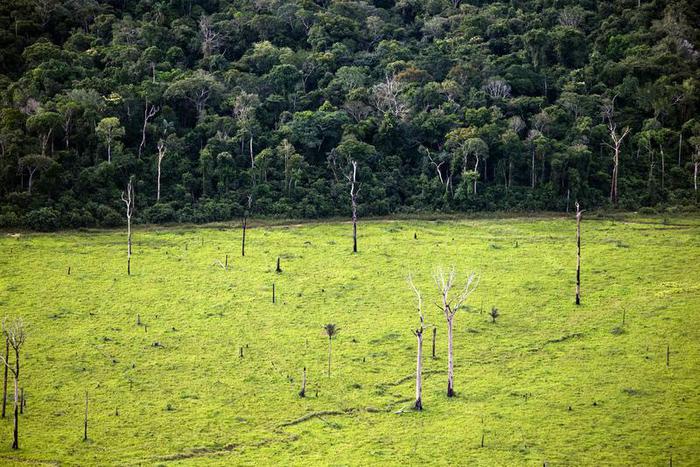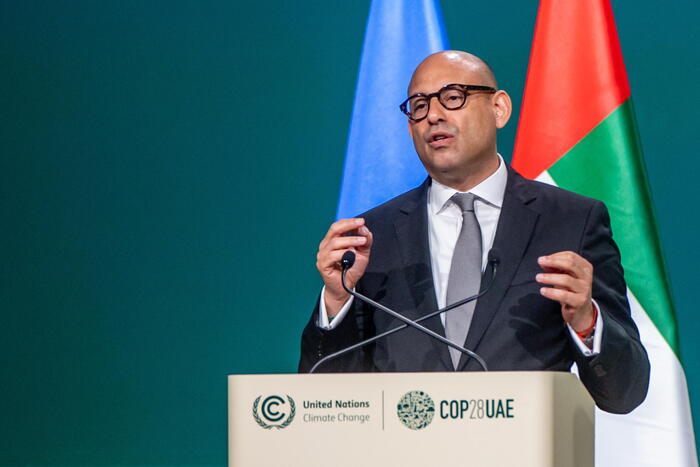Dear reader,
in the final hours of a climate conference, every single word is at stake. Then delegates get caught up in a discussion about whether something is "demanded", "strived for" or just "recognized". It was no different at the summit in Glasgow that has just ended. In the last few minutes, the commitment in the final document to phase out coal and end fossil subsidies was weakened. In response to efforts by India and China in particular, there is no longer any talk of "exit", but only of "dismantling".
As soon as the summit is over, however, the big picture is back: Did the meeting really deliver, is there any progress in the bottom line, or is all of this not enough to turn the climate crisis around?
The summit leadership, national governments and blocs of states as well as activists then try to bring their respective interpretations to the people.
Evaluating the results of the last two weeks is particularly difficult this time for several reasons.
On the one hand, this is due to the fact that both the British hosts and the climate movement began in the weeks before the start to turn what was originally a more technical working meeting into a kind of decisive battle over the climate.
So you set the bar very high for success.
On the other hand, some of the resolutions negotiated are so technical that it is difficult to sort them into easily understandable categories of success and failure. What was mainly developed in Glasgow is an instruction manual for saving the world - whether and how the states use them remains to be seen.
My colleague Susanne Götze was there from start to finish at the summit in Glasgow, repeatedly spoke to delegations from the states on site, closely followed the development of the negotiating texts and interim results and obtained the opinion of experts.
In a large three-part analysis, she classifies the results of this 26th World Climate Conference and explains them: what is a breakthrough and what is not, who has prevailed in the negotiation thriller - and what the short-term and long-term consequences of the decisions are.
If you like, we will inform you once a week about the most important things about the climate crisis - stories, research results and the latest developments on the biggest topic of our time. You can subscribe to the newsletter here.
The topic of the week: Glasgow
This is how the states want to solve the climate crisis: The degree hike from Glasgow
1.5 degrees?
We strive to.
Emissions targets?
We improve.
At the largest world climate summit ever, the states mainly agreed on soft declarations of intent.
Was it still a success?
This is how the final spurt at the climate summit went: Who pushed, who slowed down, who prevailed
You blackmail us, accuse poor nations of the rich.
You are not doing enough, warn the industrialized countries.
The final round of the climate conference has turned into a battle of nerves.
The USA, Europe, China - who won them?
This is how it will continue after the climate summit: Those who have to work hard now
After all, the coal phase-out made it into the final declaration.
How the Glasgow resolutions are changing the fight against the climate crisis - and what Germany can expect.
World Climate Conference: Germany's surprisingly lame role in Glasgow
The German negotiators have to laboriously coordinate with the possible new government because of the coalition negotiations.
It cannot sign important initiatives - and is sending a fatal signal.
Plateau in CO₂ emissions: Why the unstoppable increase in emissions has come to an end
One message, the symbolic value of which could hardly be greater, has almost disappeared this week: CO₂ emissions no longer do what they have been doing for decades - they no longer rise.
UN climate conference: how do ships and planes finally get clean?
Aviation and shipping are on the pillory of CO₂.
Now they want to get out of the dirty corner.
What could your path to a climate-neutral future look like?
An overview.
UN climate conference: States seal the end of the combustion engine - but Germany is slowing down
Between 2035 and 2040, no more new cars with combustion engines should roll onto the streets worldwide.
However, the federal government does not sign the corresponding agreement in Glasgow - why?
Afforestation for money: The deceptive miracle program of Mexico
President López Obrador wants to fight climate change, the migration crisis and the drug cartels at the same time with the "Sembrando Vida" campaign.
A groundbreaking idea?
Or a big dizziness?
World food and climate crisis: "We can learn a lot from indigenous people"
The way we eat destroys the world.
The agricultural economist Yon Fernández de Larrinoa is convinced of this.
He researches the food systems of indigenous peoples and sees solutions to the climate crisis there.
Stay confident
Your Kurt Stukenberg


/cloudfront-eu-central-1.images.arcpublishing.com/prisa/DOOQ2YEAZJCSNITR6TA2ARDQT4.jpg)






